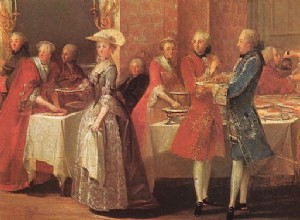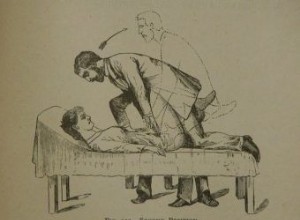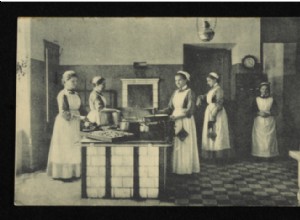A meal at the court. A meal based on exotic dishes and spices cost Marie Antoinette and other nobles a few days of forced diet Although Queen Marie Antoinette she habitually ate little (https://www.pilloledistoria.it/3864/storia-moderna/i-pasti-sobri-maria-antonietta), every now and then she lov




